How to know if baby is getting enough breastmilk?
Is my baby feeding enough?
Is my feed enough for my baby?
How to know if baby is full after breastfeeding.
For most new breastfeeding mothers, whether their baby is getting enough breast milk is one of the biggest concerns. After all, your breasts seem to have little milk and there is no way of measuring how much your baby has actually had unlike a bottle which you measure and serve.

Most of the times, this concern is the main reason, mothers start supplementing with formula, which in turn leads to further reduction in milk supply. Read more about breastfeeding basics here for breastfeeding success.
How to know if my baby is getting enough breastmilk?
There are many signs which can indicate that your baby is getting enough breastmilk :
- Your newborn should feed 10-12 times during the 24 hours. Your doctor may advise feeding every 2-3 hours or whenever baby demands for feed. It is best to follow baby’s cue, though you should not let newborn babies go too long without a feed. If your baby is feeding often, most probably your baby is getting enough breastmilk.
- You breasts feel fuller and heavier before feeding which means your breasts are producing milk and they feel lighter and softer after feeding. This means baby is emptying the breasts successfully and is getting enough breastmilk.
- If your baby seems happy and satisfied after breastfeeding session, it usually means she is getting enough breastmilk to feed herself.
- Your breasts are producing milk if you experience let-down. Let-down is the coming out of milk from breasts due to any trigger like listening to baby crying. Let-down usually involves dripping or spraying of milk and some mothers feel a distinct tingling sensation similar to pins and needles.
- You need not worry too much about how much you baby is feeding, just keep track of what your baby is expelling. Keep track of wet and poopy diapers. Your baby should have 8-12 wet diapers during 24 hours. This means your baby is getting enough. This is the case after first 2-5 days. First 2-5 days, your baby only takes in colostrum which is not much and hence does not produce too many wet diapers. Once your breast milk comes in, she will start peeing regularly.
- Baby’s urine is pale and clear and is odorless.
- Your baby’s doctor will keep track of baby’s growth and weight. If baby is gaining weight steadily, then you don’t have anything to worry. This is best indicator that your baby is fine and is getting enough breastmilk.
- If your baby is producing seedy, yellowish poop at least 2-5 times time a day during the first month, it shows your baby is getting enough breastmilk. This yellowish, seedy stools are called milk stools and they appear after 2-5 days. The first dark colored , almost black stool is called meconium. After first month, it is common for many exclusively breastfed babies to skip one or more days between bowel movements.
How to know baby is not getting enough breastmilk to feed?
There are signs that your baby may not be getting enough breastmilk just there are signs to the contrary. In case you notice these, you must consult your doctor or a lactation cosultant.
- Biggest sign that your baby is not thriving is if baby loses weight continuously. It is normal for baby to lose some weight initially, but most babies rapidly gain back lost weight within 10-15 days and continue to gain weight.
- You baby appears dull, does not smile much and is fussy or lethargic most of the time.
- Baby does not appear staisfied and fusses even after a long time on breast. Finger sucking and crying even after a full breastfeeding session could mean baby is still hungry.
- Baby has less than 6 wet diapers in 24 hours even after 5 days. Baby’s urine is dark and smelly.
- You can hear baby’s gulping and swallowing sounds while nursing. However, there are babies who feed silently, so don’t worry if baby is otherwise fine.
- Baby produces dark, small, hard stools even after five days.
- You breasts feel engorged. This means your breasts are producing enough milk, but baby is not able to drain them completely. There could a latching problem which can easily be corrected with right counseling.
Is mother’s milk enough for baby?
Nature has taken care of this and most mothers produce ample amount of milk to feed their babies. Unless, there is some medical complication like diabetes or hypothyroidism, you need not worry about milk production. Even in such cases, more than half the women are able to produce enough milk and feed their babies successfully. You can be rest assured that nature makes sure that baby is getting enough breastmilk to feed, unless there is some major problem which your doctor will let you know.
Below are some common questions first time mothers have about breastfeeding:
My baby was born 2 days ago, but there is still no milk. Will I be able to breastfeed my baby ?
It takes 2-5 days for milk to come. Till then breast produce pre-milk or colostrum which is thicker, yellowish and sticky. So do not worry, within 2-5 days, milk will come in and it will change to yellowish transitional milk which then change to white milk and you will be able to feed your baby normally. Till then keep feeding the colostrum, which is full of nutrients and antibodies. Read more about colostrum and its benefits.
My 3 days old baby has lost weight since his birth. Why?
Babies are born with extra fluid and babies lose 7-8 ounces of weight during the first 2-5 days. During this time, your breasts are producing colostrum which is perfect for baby and is very little in amount. Once, milk has come and baby starts feeding regularly, baby should gain back lost weight within a week or so. If your baby continues to lose weight, let baby’s doctor know about it.
How often should my baby nurse in a day?
A newborn should nurse at least 8-12 times in 24 hours. This is very important during first couple of weeks as baby may not demand feeding on her own initially. Newborn usually feed and immediately go back to sleep. If your baby goes for more than 4 hours without feed, you should wake the baby up and feed.
During second month, baby may breastfeed eight to ten times a day and seven to eight times a day during the third month. By now baby is able to demand feeding and you should follow baby’s cues.

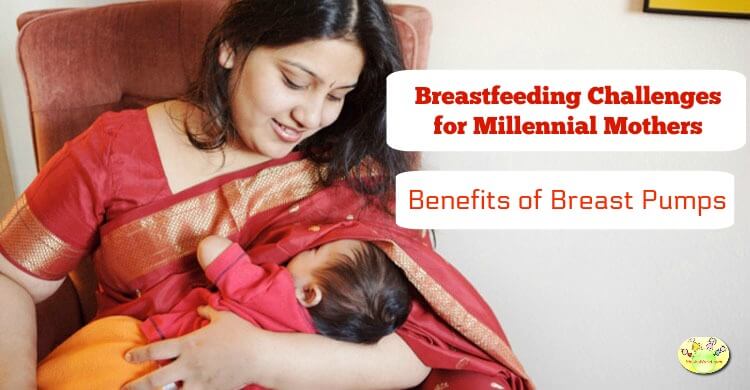
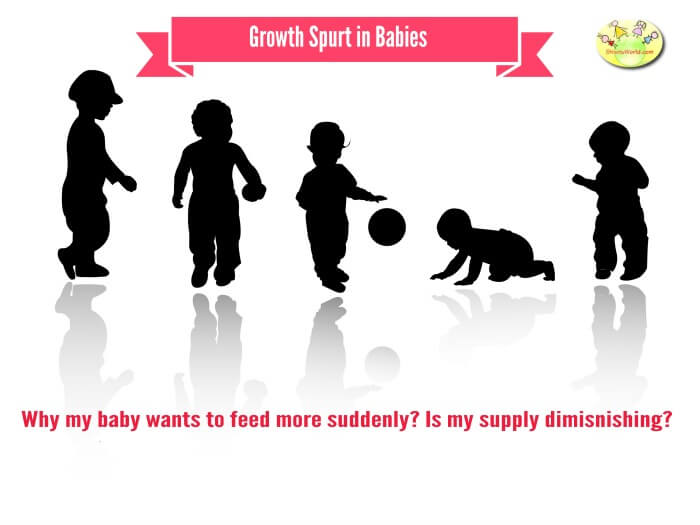
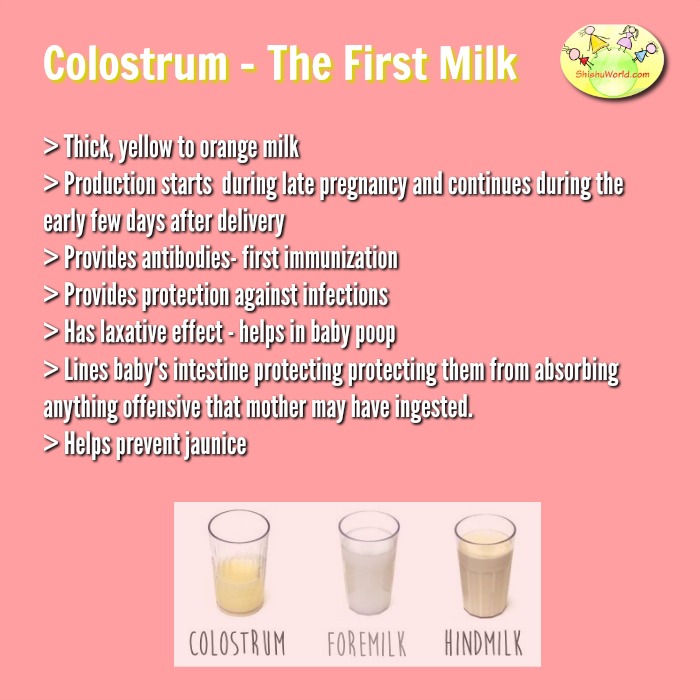

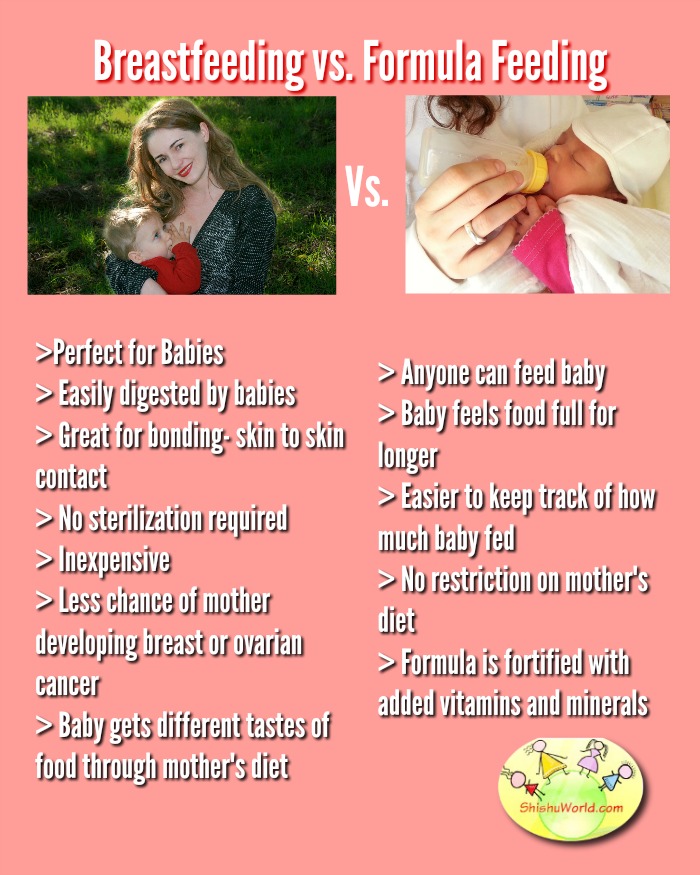
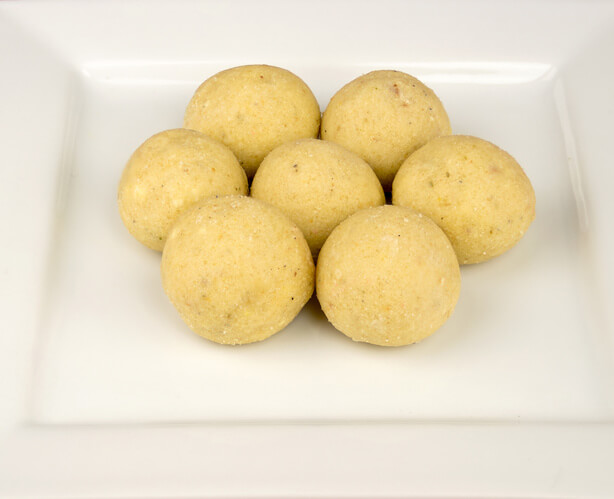

My baby had suffered with loose blood stools in her 09th month, on which the doctor advised to stop breast feeding and suggested NUSOBEE (CAESIN) powder.
Now she is in 11th month and not getting enough breast milk.
Can we continue with NUSOBEE (CAESIN) powder?
Please suggest the food to be given also ?
Thanking You,
Raju
Hello Mr. Raju,
It is best to take doctor’s advice in case of medical condition. Please consult your baby’s doctor on how to proceed now.
For food, by 11 months babies can take a lot of food, but that depends on whether your baby has been already introduced to a variety of solids and how much. If she has problems, it is best to proceed with caution and introduce new foods gradually.
You may follow the monthly food charts:
http://www.shishuworld.com/index.php/category/baby/month-wise-food-chart-menu-for-babies/
Hope these help!!
How I can stop breastfeeding becoz it is affecting my health deficiency of calcium and vitamin D. My baby doesn’t take bottle milk.